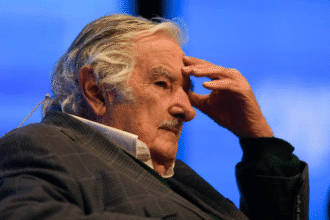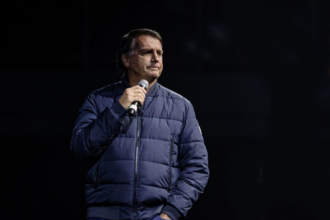Venezuela’s volatile political landscape intensifies as the regime of President Nicolás Maduro escalates its crackdown on opposition forces, seeking the arrest of Edmundo González, his primary challenger in the contested presidential election.
Why Was an Arrest Warrant Issued for the Opposition Leader?
A court tightly allied with President Nicolás Maduro has issued an arrest warrant for Edmundo González, the opposition candidate in the most recent presidential contest, in a significant escalation of Venezuela’s political turmoil. This court action responded to an official public prosecutor’s office request under the direction of Maduro’s government.
Dominated by regime supporters, the electoral council pronounced Maduro the July election’s winner. Still, the Venezuelan administration has yet to generate significant data supporting this result. González’s campaign, in the meantime, argues that their election results clearly show his triumph, therefore adding further gasoline to the debate.
How Did the Disputed Election Spark Conflict?
Direct challenger of Maduro in the contested election, González disappeared following the voting. Claiming a massive margin of victory—over 30%—his opposition group has taken a daring move by disclosing vote statistics online. This data, which contradicts official government figures, is the basis for the legal accusations against him.
The charges directed against González are severe. Charged with “serious crimes,” the public prosecutor has accused him of public duty theft, document fabrication, disobedience encouragement, and system sabotage. Through his spokespeople, González has fiercely refuted these claims, insisting that his campaign was carried out legally and honestly.
Declared President Maduro during a broadcast speech, “No one in this country is above the laws, above the institutions,” he said, underlining his government’s uncompromising posture against opposition challenges. His comments remind us of the government’s will to keep control independent of growing unrest.
What Are the Global Reactions to Venezuela's Political Crisis?
The release of the arrest warrant against González set off a global reaction. Along with other Latin American countries, the European Union has rejected acknowledging Maduro’s re-election without access to the voting totals. Once a close friend of Maduro, Brazil’s President Luiz Inacio Lula da Silva has urged total openness from the Venezuelan administration to help ease the crisis.
Additionally, the United States weighed in, formally acknowledging González as the official election winner. “There is overwhelming evidence of Maduro’s defeat,” said a US State Department official. With people gathering to demand the publication of the actual election results, this awareness has sparked further domestic demonstrations in Venezuela.
Why Is the UN Alarmed by Widespread Detentions?
The United Nations has been closely examining Venezuelan affairs since it shows great worry about the continuous flow of detentions. The Maduro government has jailed more than 2,400 people since the contentious election, most of them members of the opposition. The UN has labeled these acts as helping to create a “climate of fear” inside the nation, therefore undermining the already precarious civil rights.
Now, with the arrest warrant against González issued, it is increasingly likely that he, too, may be arrested under charges of inciting public disturbance and conspiracy. The crisis’s worsening is pushing Venezuela into further political instability, and the possibility of general upheaval is becoming ever more possible.
How Are Diplomatic Tensions Escalating Over US Sanctions?
Particularly when the US Department of Justice confiscated an aircraft used by President Maduro, the growing crisis in Venezuela has severely strained ties with the United States. Allegedly obtained in contravention of US sanctions on Venezuela, the jet has been a central focus in the continuous diplomatic strife. Maduro’s administration has denounced the seizure as ” piracy,” and Washington has been accused of unilaterally imposing her will on other sovereign countries.
“Washington continues to interfere in our sovereign affairs, undermining our national independence,” a Maduro government spokesman said in reaction to the rising hostilities. The Venezuelan administration sees the US activities as part of a more extensive campaign meant to destabilize the nation and control its political course.
What Does the Future Hold for Venezuela?
Venezuela’s political turmoil escalates calls for future instability in the country. Tensions in South America are rising due to contested election results, widespread detentions, and mounting worldwide pressure. The approaching possibility of González’s arrest represents a turning point in Venezuela’s continuous struggle between democratic ambitions and an authoritarian government.
Venezuela finds itself at a crossroads with opposition groups determined in their challenge and the Maduro regime determined to keep control over power. The result of this power conflict will have significant consequences not only for the democratic institutions of the country but also for the stability of the whole region.








